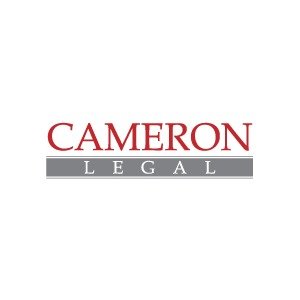Best Personal Injury Lawyers in Epping
Share your needs with us, get contacted by law firms.
Free. Takes 2 min.
List of the best lawyers in Epping, Australia
About Personal Injury Law in Epping, Australia:
Personal injury law, sometimes referred to as "tort law," covers any wrong or damage done to another person, property, or rights, due to someone's negligence or harmful act. In Epping, Australia, like elsewhere in the country, personal injury law enables an injured person to claim compensation for losses or damages caused by another party. The law covers a broad range of injuries, including physical injuries, psychological and emotional harm, and damages to property.
Why You May Need a Lawyer:
Engaging a legal professional is crucial in personal injury cases due to the complexity of these matters. Lawyers can help navigate the legal system, engage with insurance companies, collect evidence to establish liability, calculate realistic compensation amounts, and represent your interests in court. Some common situations where you may require a lawyer include car accidents, workplace injuries, medical negligence, slips and falls, and product liability cases.
Local Laws Overview:
In Epping, Australia, personal injury law is governed by several pieces of legislation. The statutes of limitations that apply will depend on the type of injury you have experienced. There may also be requirements to notify the person you are claiming from within a set time period after the injury has occurred. Furthermore, demonstrating that the other party was at fault and that your injuries are serious and permanent may be necessary to secure compensation. An experienced lawyer can provide specific advice based on your situation.
Frequently Asked Questions:
1. How long do I have to file a personal injury claim in Epping, Australia?
The period of time to file a claim can vary depending on the circumstances, but generally, you have three years from the date of the accident or injury. However, different rules may apply in some instances, such as for children or in medical negligence cases.
2. Can I make a claim if the accident was partly my fault?
Yes, you can still make a claim if you were partly at fault. However, your compensation might be reduced to reflect your level of responsibility for the accident.
3. What type of compensation can I receive?
Compensation can include reimbursement for medical expenses, loss of income (both past and future), pain and suffering, and property damage. The specific amount will depend on the nature and extent of your injuries.
4. Will I need to go to court?
Most personal injury claims are settled out of court. However, if a fair resolution cannot be reached, it might be necessary to go to trial. Having a lawyer can provide valuable assistance in these cases.
5. Can I make a claim against a company or public institution?
Yes, you can make a personal injury claim against a company, public institution, or government body if they were responsible for your injury.
Additional Resources:
Services such as the Legal Services Commission and Community Legal Centres can provide free or low-cost advice. These services can also connect you with legal professionals who specialize in personal injury law. Law Handbooks and legal databases may offer further insight into the specific laws governing personal injury in Epping, Australia.
Next Steps:
If you believe you have a personal injury claim, you should reach out to a lawyer promptly to discuss your case. Delaying may affect your right to claim. Your initial actions should also include attending medical evaluation of your injuries, reporting the accident, and collecting as much evidence as possible.
Lawzana helps you find the best lawyers and law firms in Epping through a curated and pre-screened list of qualified legal professionals. Our platform offers rankings and detailed profiles of attorneys and law firms, allowing you to compare based on practice areas, including Personal Injury, experience, and client feedback.
Each profile includes a description of the firm's areas of practice, client reviews, team members and partners, year of establishment, spoken languages, office locations, contact information, social media presence, and any published articles or resources. Most firms on our platform speak English and are experienced in both local and international legal matters.
Get a quote from top-rated law firms in Epping, Australia — quickly, securely, and without unnecessary hassle.
Disclaimer:
The information provided on this page is for general informational purposes only and does not constitute legal advice. While we strive to ensure the accuracy and relevance of the content, legal information may change over time, and interpretations of the law can vary. You should always consult with a qualified legal professional for advice specific to your situation.
We disclaim all liability for actions taken or not taken based on the content of this page. If you believe any information is incorrect or outdated, please contact us, and we will review and update it where appropriate.








